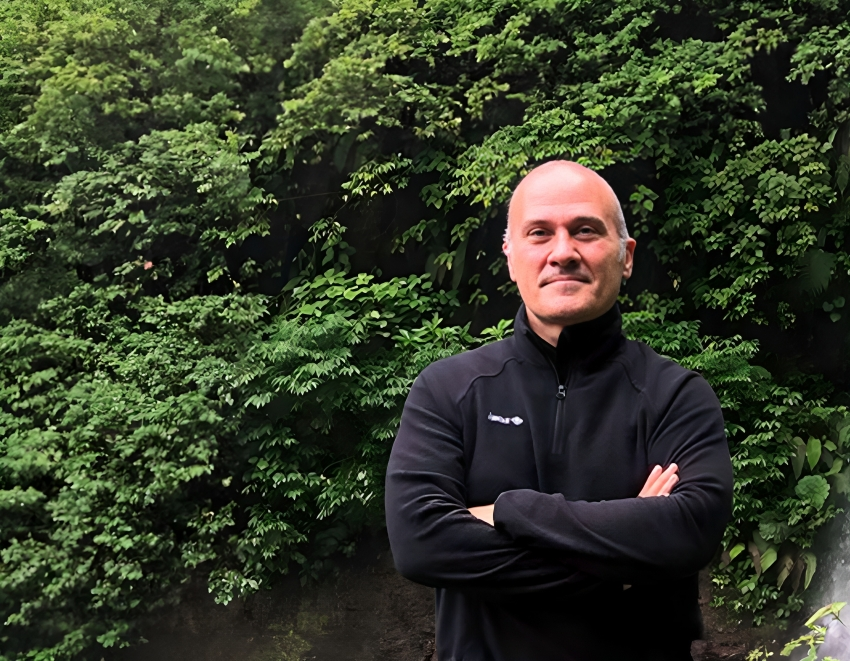
The energy industry is in flux. Lockdown and social-distancing measures triggered delays in project construction and extreme disruption plagued global supply chains. But even more challenging were the low commodities prices due to a sharp decline in energy demand, which resulted in significant losses for the industry.
Many senior executives have been scrambling to find solutions – but not Giancarlo Savini (EMBA 2018), Manager Investments and Partnerships for the Renewable Power and Heat division of Shell Ventures. While Savini admits that the going hasn’t always been easy, the company had years of preparation for this industry transformation.
“The energy transition is real and sustainability is no longer perceived as a choice or an incremental cost, but a matter of survival,” says Savini. “The adoption of sustainability practices occurred faster than experts believed,” acknowledging that a move toward alternative energy sources was always clear but that COVID-19 sped up the process.
Shell Ventures is the Corporate Venture Capital arm at Shell, the world’s largest energy company. It invests in renewable-sourced power and heat, smart mobility, and oil and gas. Savini directly creates and implements integration strategies between portfolio companies and Shell global business units directly aimed at reinforcing and supporting the company’s strategic objectives.
“We are also hedging our bets on specific areas,” says Savini. “Investing far and wide across new technologies will give us preferential access to innovations, alternative locations and new markets in the future.”
New technologies
His long-time employer Shell has ambitious targets on decarbonization. In order to meet them, it must diligently search out new business models and new technologies, according to Savini.
“Large corporations tend to be the fastest entities to adopt new technologies and business models,” explains Savini. “The problem is not finding innovations per se, but rather the transition process – implementing them across a vast array of business units globally.”
As part of his responsibilities at Shell Ventures’, Savini champions new areas and scales up cutting-edge technologies and business models to bridge the gap between ventures and corporate executives.
One area the company supports is decentralized power generation with consumption optimization, and energy exchange and tracking platforms. Shell invests in companies that install batteries and solar systems in homes, so people can generate and store their own electricity with solar panels or wind.
Shell Ventures’ recent investment in Palmetto, a San Diego-based energy management and consumption tracking platform, represent a strong footing in this new field. This company is an innovator that is revolutionizing how homeowners can use solar energy to save money and reduce their carbon footprint.
“The days of only one giant power plant bringing energy to many customers is essentially over,” says Savini. “This technology allows people to be less dependent on the grid in the not-so-distant future”.
New business models
Additionally, home-based generation and storage of energy is triggering the emergence of many new business models as people begin tracking, optimizing and trading their surplus power.
“Many companies we invested in will allow people to trade their surplus power efficiently,” explains Savini. “A school’s football team, for example, could create a virtual community and exchange power between themselves or with other communities.”
In many deregulated markets like the United States, customers can change electricity suppliers swiftly, which is not the case in most of Europe. It is often expensive for utility companies to attract and retain customers in those dynamic markets. Savini believes that if people are part of a virtual ”energy exchange community”, they will be increasingly loyal.
Most decentralized power is renewable, so in this case, what is good for the people is also good for the planet
“The adoption of this new technologies and business models will essentially enable even more decentralized power generation,” says Savini, “and the zero-carbon energy produced will drastically reduce emissions.”
To ensure the planetary temperature rise is limited to 1.5°C, as laid out by the Paris Agreement, there is no time to waste.
Savini agrees: “For the world and its inhabitants, every step toward less carbon is a step in the right direction.”


